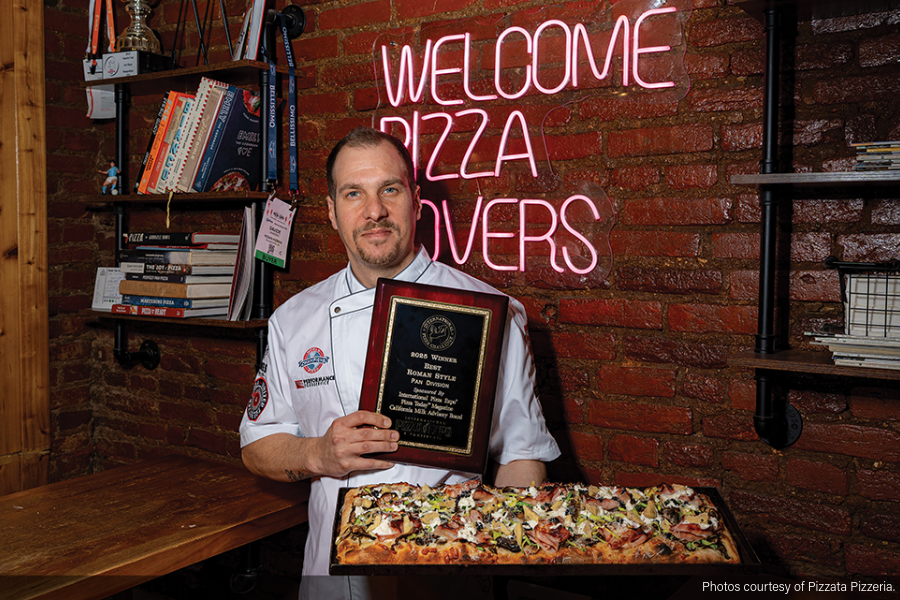
How to avoid unwanted attention by the Department of Labor
There’s good attention and then there’s bad attention, and getting noticed by the Department of Labor falls under the latter category, which is why most smart pizzeria operators take pains to stay on the right side of this government agency. But despite the best good-faith efforts it’s still possible to unwittingly fall out of compliance with DOL regulations, inviting unwanted scrutiny and potentially ruinous fines. Adding to the concern is the fact that DOL audits are “most definitely on the upswing,” and the restaurant industry makes an attractive target, says Maria Dwyer, an attorney with Clark Hill, PLC. The nationwide, full-service law firm headquartered in Detroit, includes a team of attorneys specializing in the food, beverage and hospitality industries.
“The restaurant industry is very susceptible to audits by the (DOL) because of the complex payment of wages issues, such as minimum wage for tipped employees and misclassification of employees as salaried exempt when they are in fact, hourly,” explains Dwyer.
Another reason for the increase in audits is that under his two terms, President Obama has regularly added additional enforcement officers to the DOL team, says Dwyer, resulting in greater manpower being directed towards these kinds of investigations.
Ryan Holdan, president/founder of Paymasters, Inc., is seeing the same. Located in Birmingham, Michigan, the company provides payroll, HR, and time and attendance solutions for the restaurant industry. According to Holdan: From 2009 to 2014 the number of DOL restaurant industry audits went up six percent year over year. However, the wages the agency collected have risen from $17 million to $34.5 million, more than doubling, amounting to a 15-percent growth rate year over year.
The DOL is increasingly taking the investigative initiative rather than just acting on employee complaints. Directed investigations of the restaurant industry have increased from 35 percent to 45 percent. In a growing number of these investigations, adds Holdan, they’re finding violations.
Holdan says there are five areas of operation where pizzeria operators tend to make mistakes, running afoul of DOL regulations. These are; under-reporting of tips, minimum wage violations, overtime wage violations, I-9 violations, and poor or non-existent recordkeeping or HR policies. In this article, we’ll examine the first two, covering the remaining three in the June issue.
• First, let’s look at under-reporting of tips. It’s the employer’s responsibility to accurately report all wages and tips to the IRS; if they don’t the IRS can hold the employer responsible, says Holdan. The problem for pizzerias is that generally, they don’t have the processes in place to ensure employees are reporting 100 percent of their tips.
“The biggest myth in the industry is that you only have to report eight percent of the sales as tips,” says Holdan. “And restaurants set up their POS systems in this way, giving employees no opportunity to accurately report their tips. And this is violating the law.”
Another common misunderstanding he finds among pizzeria operators is thinking that if they pay their delivery drivers minimum wage or above, the drivers don’t need to report their tips. But these employees still need to report 100 percent of their earnings just like any other employee, says Holdan.
What to do? Holdan advises that employees keep a daily tip journal, reporting the amount they’ve received (on cash and credit card sales), how much they’ve tipped out and to whom. This can be done through the POS system, or employees can fill out the IRS Form 4070 (“Employee’s Report of Tips to Employer”). Employees must verify and sign the journal or document that they’ve accurately reported all tips and this should be done prior to payroll processing.
Taking this approach to tip reporting demonstrates that pizzeria operators are doing all that they should be doing — short of reaching into employees pockets to verify their tips — thereby potentially reducing their vulnerability in the case of an audit or investigation.
• Minimum wage violations are also a common occurrence. When it comes to minimum-wage employees, pizzeria operators cannot take involuntary deductions from their paycheck that are for the primary benefit of the employer, such as for uniforms or register shortages. “This happens a lot,” says Holdan. “It’s very common for restaurants to do this. You can’t drop these employees below minimum wage. Even a one-cent deduction could put an employer in violation.”
Delivery drivers represent another problem area, many of whom aren’t being appropriately reimbursed for the company’s use of their private vehicle. Some restaurants take the approach of paying a flat delivery fee on top of the driver’s wages. But this isn’t a good system, says Holdan, and it could make the pizzeria operator vulnerable to legal issues (“In fact, delivery drivers are suing because they’re not being properly reimbursed,” he says).
For one thing, not every delivery driver is driving the same distance, resulting in inequitable treatment of employees, Holdan says. A better and safer way to go is doing a normal mileage reimbursement. Drivers should be required to keep mileage logs to ensure proper reimbursement, protecting restaurant operators in the process.
Look for a discussion of overtime wage violations, I-9 violations and the problems presented by poor or nonexistent recordkeeping/HR policies in the next issue.
Dos and Don’ts Recap
Ryan Holdan, president/founder of Paymasters, Inc., in Birmingham, Michigan, suggests that pizzeria operators:
Do require every employee, including delivery drivers, to report all tips from cash or credit card sales.
Do have employees keep a daily tip journal, recording the amount they received, who they tipped out to and how much. This can be done through the POS system or by having employees fill out the IRS Form 4070.
Do have employees verify and sign that they’ve accurately reported their tips.
Don’t pay delivery drivers a flat delivery fee to cover the company use of their personal vehicle. Instead do a normal mileage reimbursement. Have them keep a daily mileage log.
Don’t forget that for minimum-wage employees, taking involuntary deductions that drop the employee below the hourly minimum wage and are for the primary benefit of the employer, could put you in violation of DOL regulations.
Pamela Mills-Senn is a freelancer specializing in writing on topics of interest to all manner of businesses. She is based in Long Beach, California.







